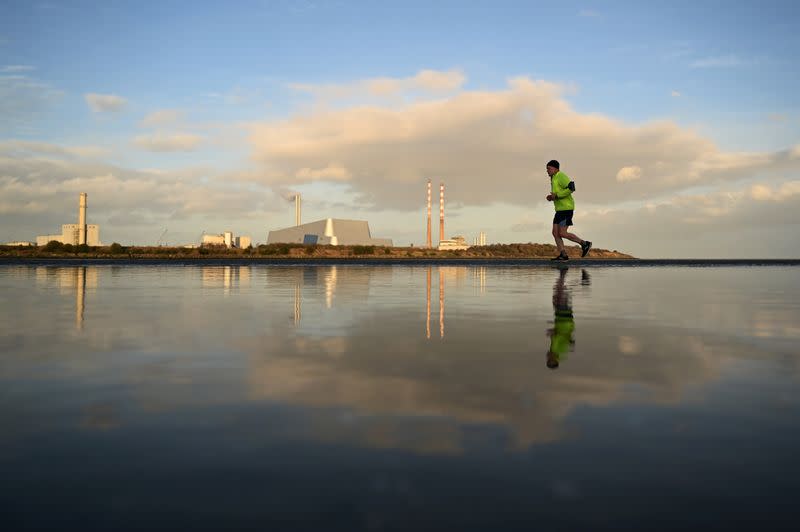Ten more weeks of strict Irish curbs as UK variant slows progress
DUBLIN (Reuters) - Ireland will remain under significant restrictions until the end of April, Prime Minister Micheál Martin was quoted as saying on Thursday, as health officials warned the near dominance of the more infectious UK COVID-19 variant was slowing suppression.
Ireland has been back in lockdown for almost two months after a wide reopening of the economy in December led to its most deadly COVID-19 surge to date, just as the variant known as B1.1.7 identified in Britain started to become more prevalent.
Nine out of every ten transmissions are now attributable to the variant, cutting the daily fall in cases from 7-10% last month to just 0.2 to 0.4% this week and prompting the government to further push out any gradual reopening of the economy.
"We've already certainly indicated that beyond Easter we'll look at it again but until the end of April you can look at significant restrictions and we'll review it after that," Martin told the Irish Mirror newspaper in an interview.
The government hopes to allow some students to return to school from early March but Martin said the construction sector will not be permitted to fully reopen next month.
Ireland's COVID-19 modelling chief, Philip Nolan, told a news conference earlier that while Ireland continued to make progress, the rate of decline in daily cases was "almost certainly" due to the B1.1.7 variant.
Nolan said that while the total number of people in hospital with COVID-19 has more than halved over the past month, new admissions seems to be plateauing at 50 per day. Test positivity has also been stuck at around 6% for ten days, he added.
As a result, his team expects the number of daily cases to drop to 400 to 500 by the end of the month versus a forecast of 200 to 400 just a week ago. Infections could drop further to 200 to 350 by mid-March if progress continues.
Ireland's five-day moving average stands at 780, equivalent to a 14-day incidence rate per 100,000 population of 252.
"We are maintaining suppression but it's precarious and we've a fundamental concern that disease levels are still very high," Nolan said.
(Reporting by Padraic Halpin; Editing by Nick Macfie and Sonya Hepinstall)

 Yahoo News
Yahoo News 

